When it comes to real estate transactions, disputes can arise for a variety of reasons, creating stress and uncertainty for everyone involved. Whether it's issues over contracts, property conditions, or unforeseen circumstances, knowing how to address these concerns is crucial for a smooth resolution. In this article, we'll explore the essential elements to include in a letter template specifically designed for resolving real estate transaction disputes. Join us as we dive in and provide you with the guidance needed to navigate this complex situation effectively!

Clear Description of the Dispute
A real estate transaction dispute can arise from various factors such as misrepresentation or contractual breaches. Buyers often face issues related to undisclosed property defects, which may include structural problems or environmental hazards. Specific examples include a roof leak discovered post-purchase or a pest infestation not disclosed by the seller. Additionally, financial discrepancies may occur, such as a seller not providing accurate closing costs or failing to honor agreed-upon contingencies. Legal disputes may escalate if either party fails to meet obligations stated in the purchase agreement, leading to potential litigation and the involvement of mediators or arbitrators. Proper documentation, including emails and contracts, is crucial for resolving such disputes, often requiring the intervention of real estate attorneys to navigate local laws in jurisdictions like California or New York.
Reference to Relevant Contracts and Agreements
In real estate transaction disputes, referencing relevant contracts and agreements is crucial. Purchase agreements specify terms such as purchase price (e.g., $300,000), contingencies, and closing dates (e.g., October 1, 2023). Lease agreements detail obligations for both landlords and tenants, including rental payments (e.g., $1,500 per month) and maintenance responsibilities. The involvement of earnest money deposits (e.g., $10,000) and disclosure forms can also impact the resolution of disputes. Studying local real estate laws (e.g., California Civil Code) is essential to understand obligations and rights. Specific incidents, such as missed inspections or undisclosed property defects, often arise in these disputes, reinforcing the need to reference these documents to clarify responsibilities.
Specific Dates and Timelines
In real estate transactions, disputes often arise concerning specific dates and timelines that are critical to the success of the agreement. For instance, a purchase agreement may outline a closing date scheduled for July 15, 2023, but delays in securing financing may cause complications. Additionally, inspection deadlines, typically set for within ten days of the contract date, can also lead to contention if the buyer fails to adhere to the timeframe, potentially invalidating their right to negotiate repairs. Moreover, the timeline for earnest money deposits, generally required within 48 hours of contract acceptance, can provoke disputes when delays occur, resulting in potential breach of contract claims. Therefore, adherence to these prescribed dates and timelines is paramount in ensuring successful real estate transactions and minimizing conflicts.
Desired Resolution and Next Steps
In real estate transactions, disputes often arise regarding issues such as contract terms, property condition, or financial discrepancies. Desired resolution typically includes clarification of contract obligations, financial compensation, or adjustments to the transaction terms. The involved parties, such as buyers, sellers, and real estate agents, must communicate effectively to outline grievances and propose solutions. Next steps may involve mediation sessions, legal consultations, or documentation of claims for further investigation. It's essential to maintain clear records of all communications and agreements throughout the dispute process to ensure transparency and aid in resolving the matter promptly.
Contact Information for Further Communication
In real estate transaction disputes, maintaining clear communication is essential. Buyers and sellers should include their full names, addresses, and contact numbers. Email addresses also play a critical role in ensuring timely correspondence. A designated point of contact, like a real estate attorney or an experienced agent, can facilitate discussions and help resolve issues efficiently. It is advisable to document all communication, noting date, time, and method (email, phone, etc.), to maintain a comprehensive record of interactions throughout the dispute resolution process.

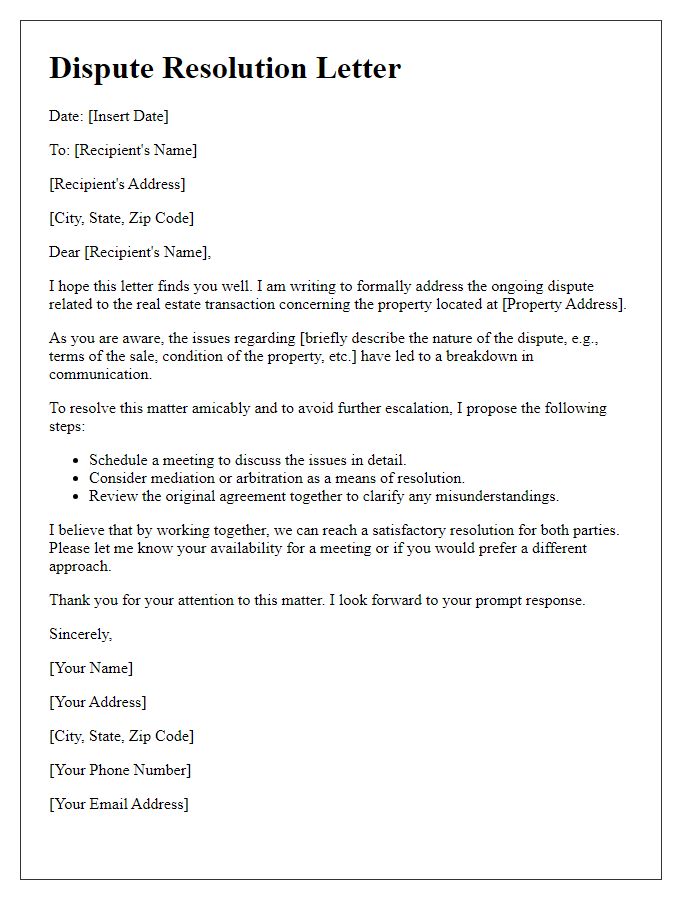
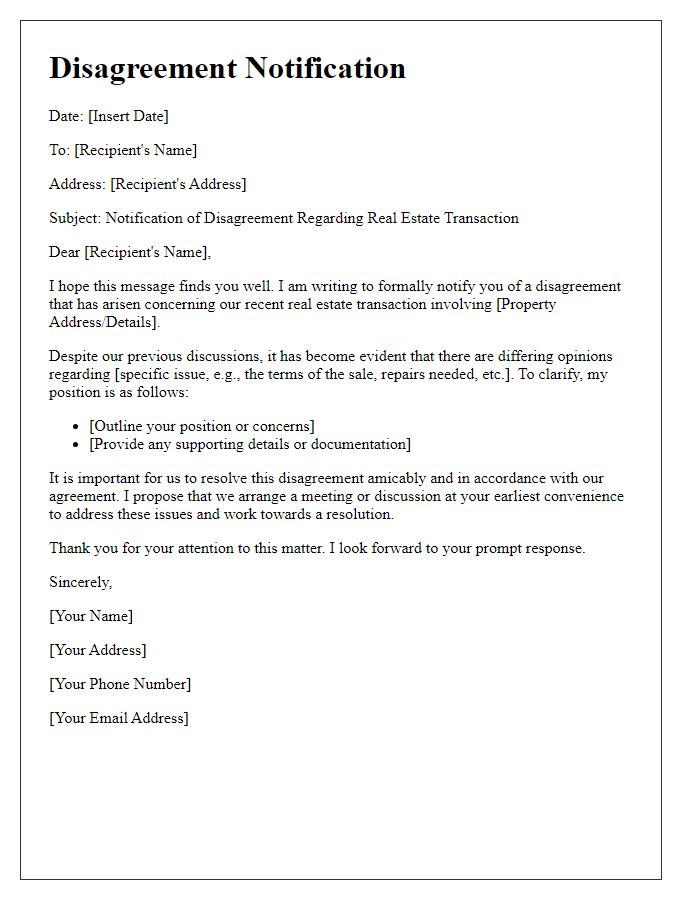
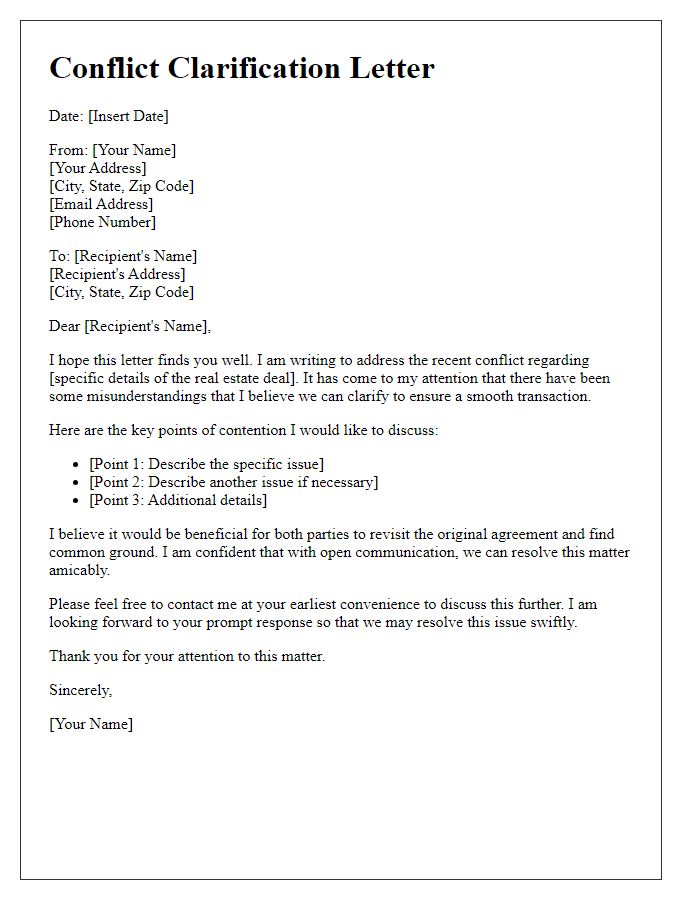
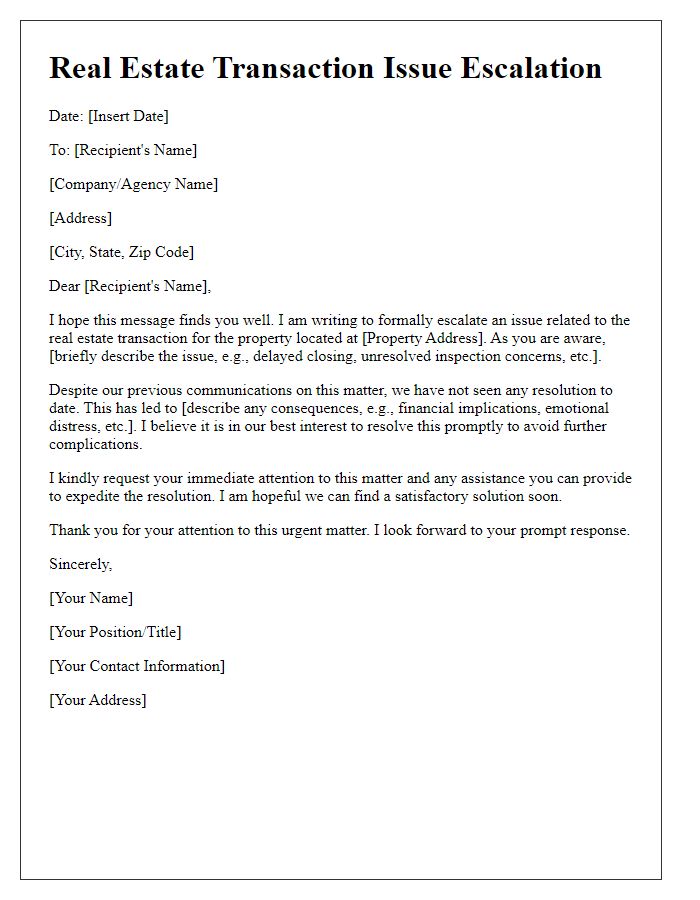
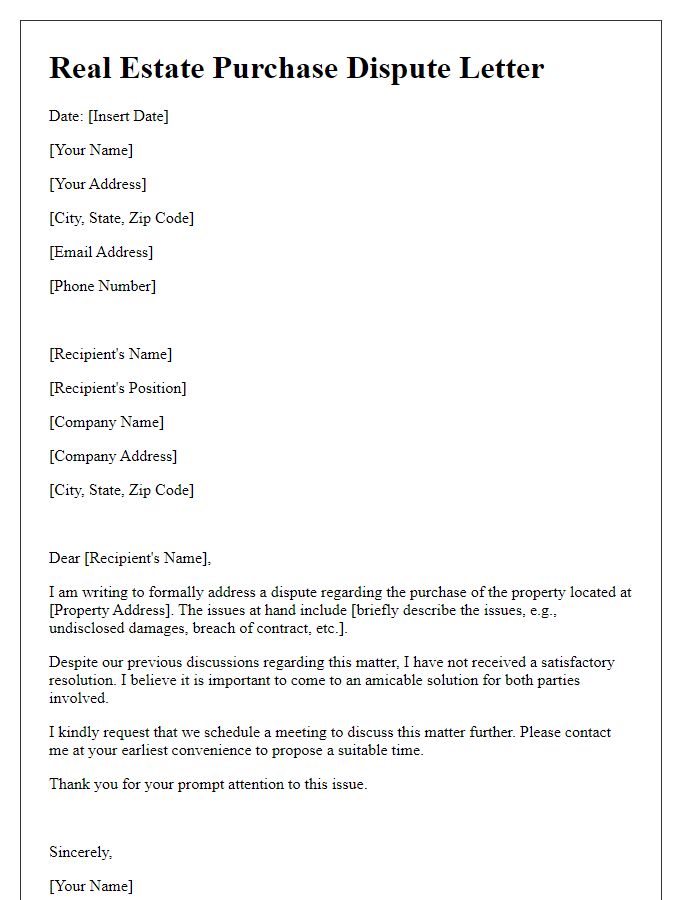
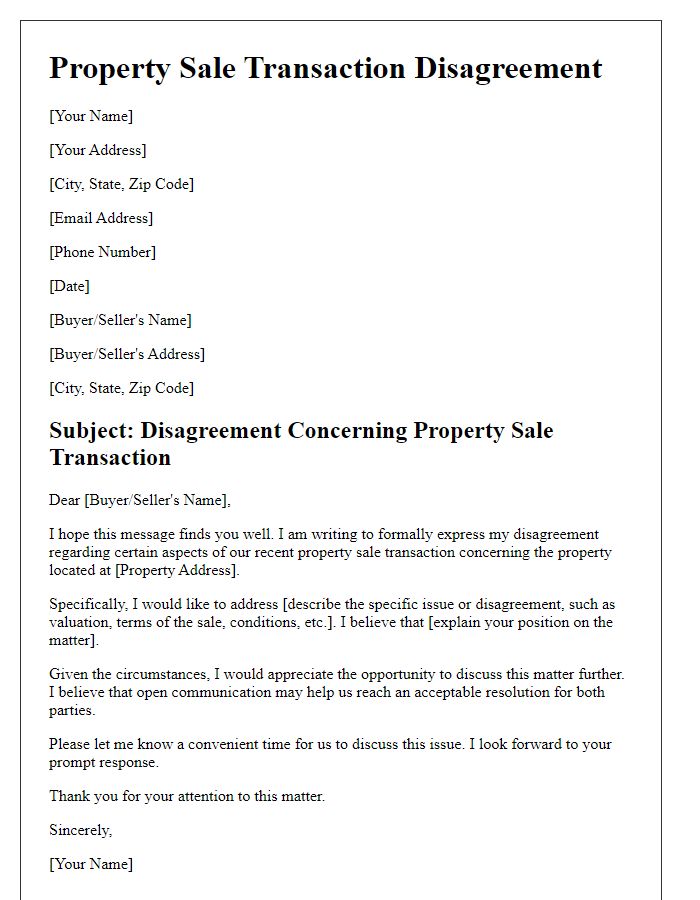
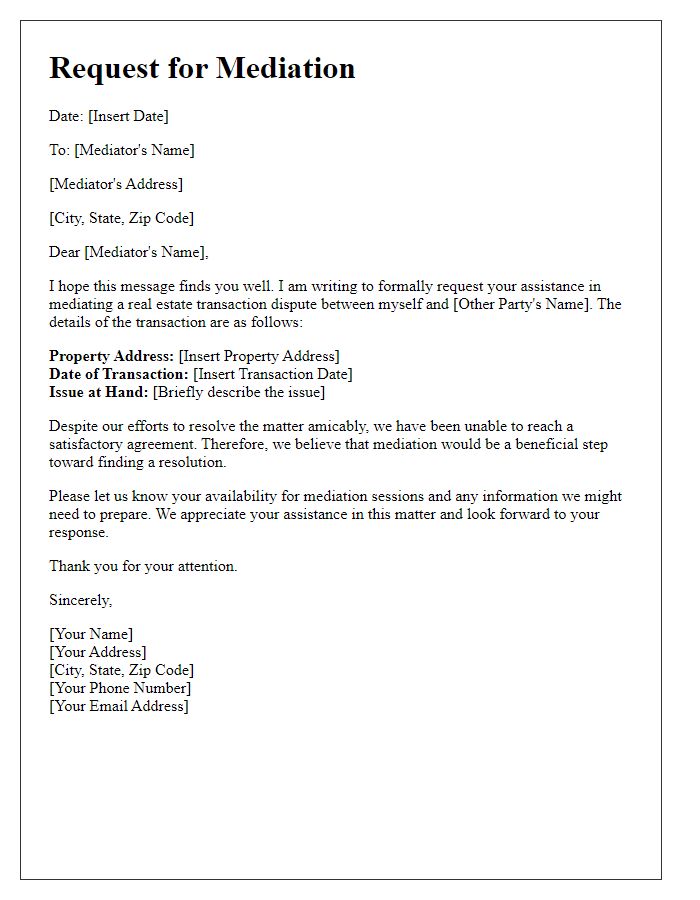
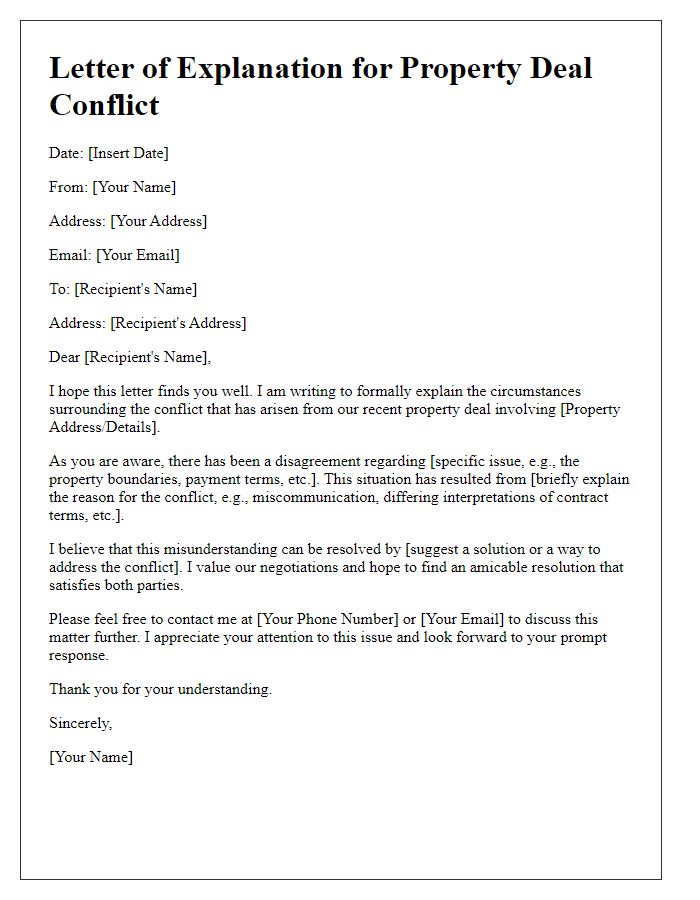
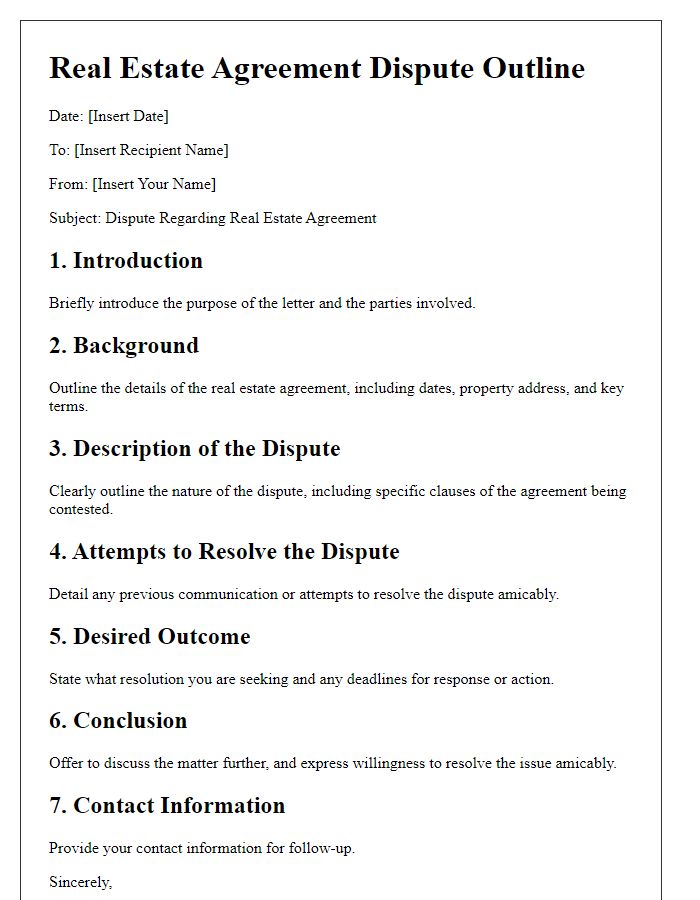
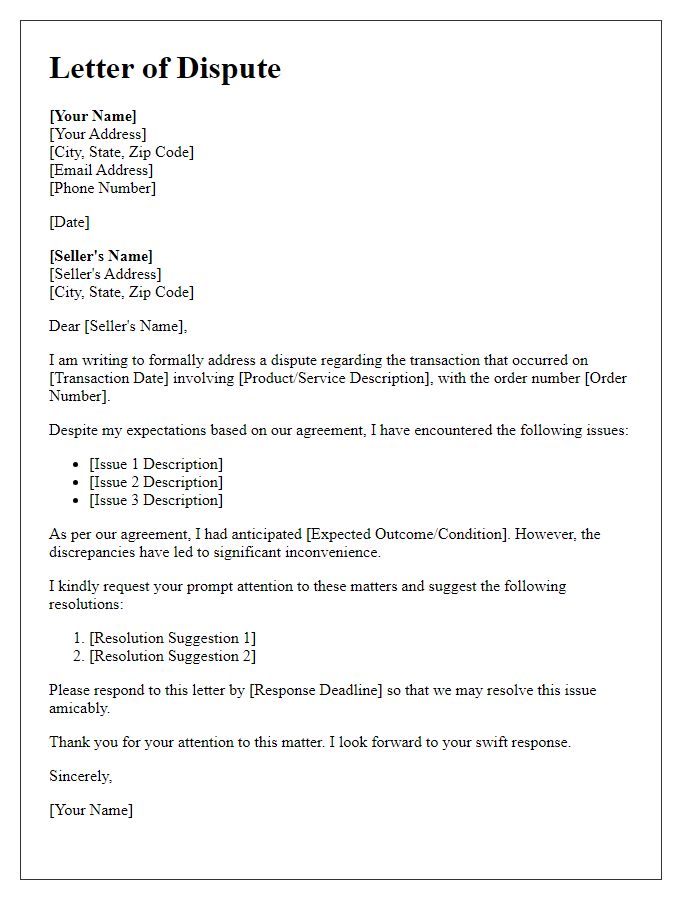

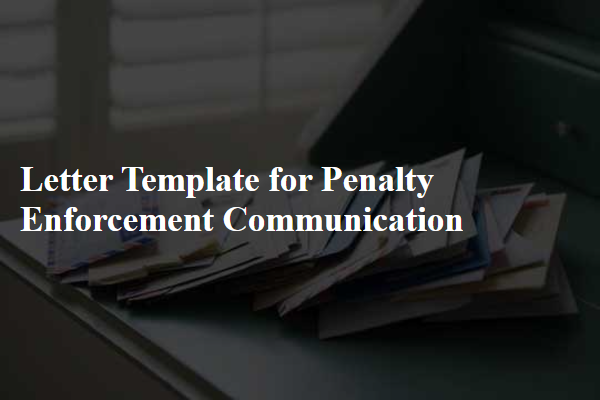
Comments